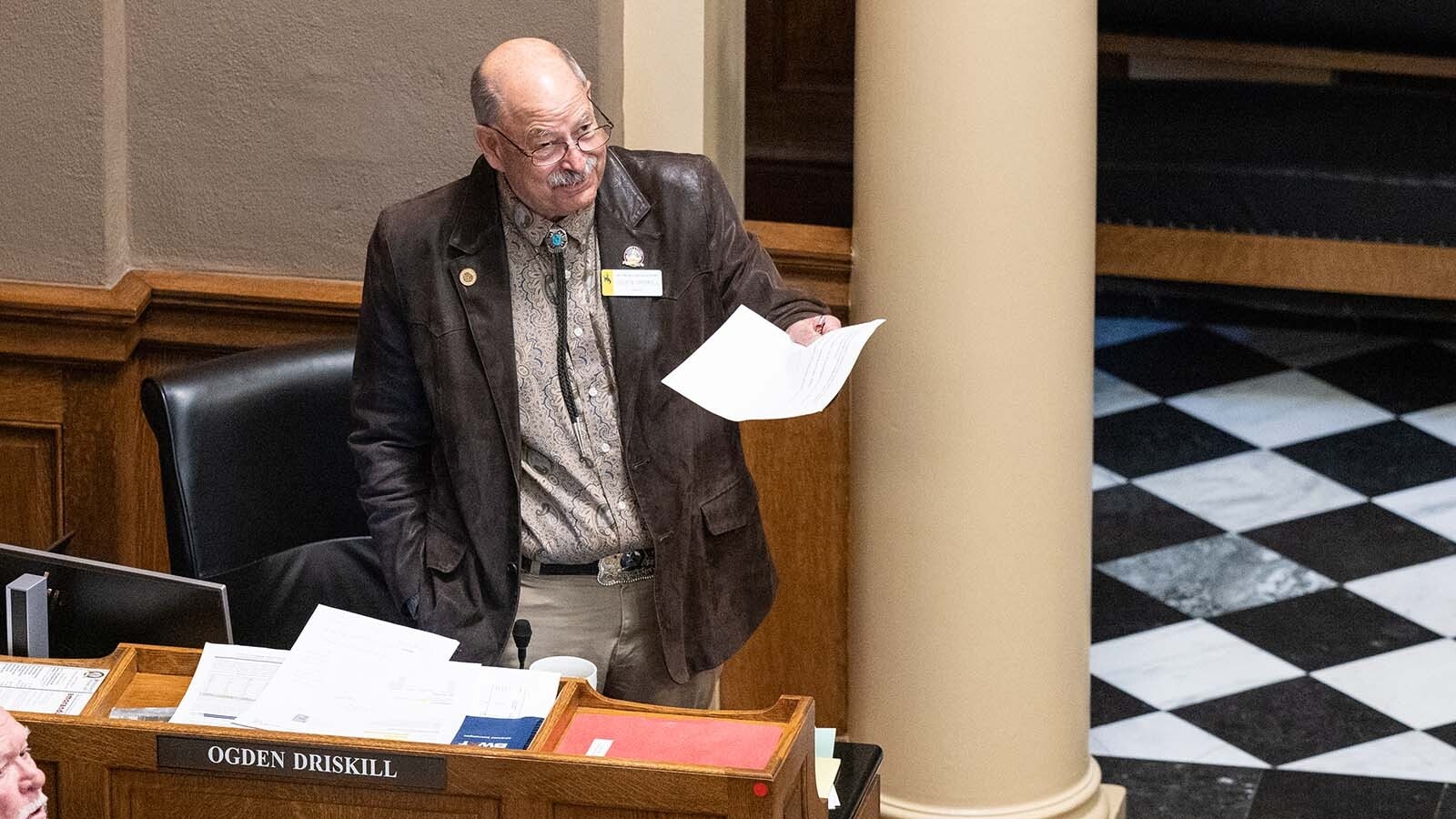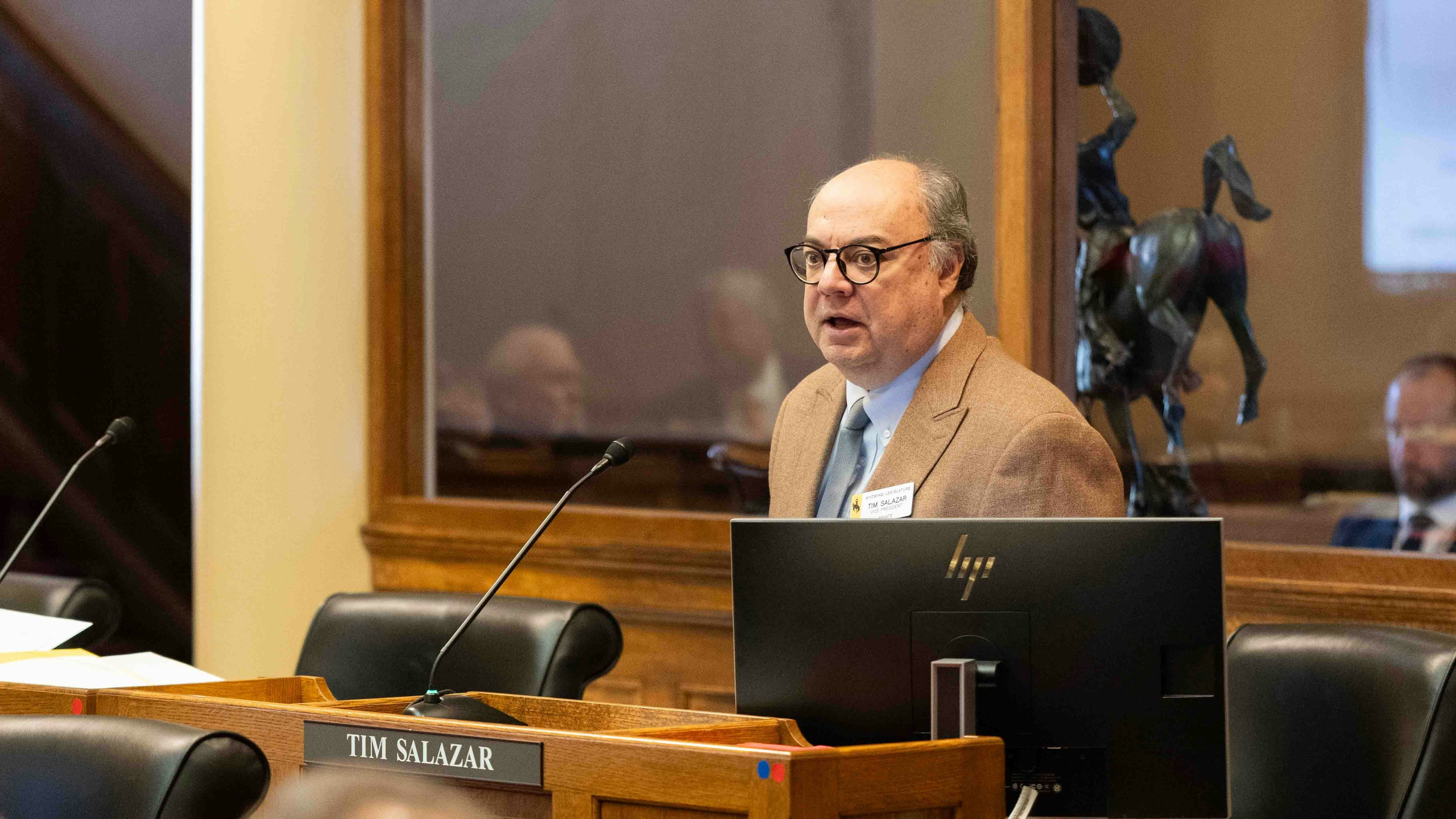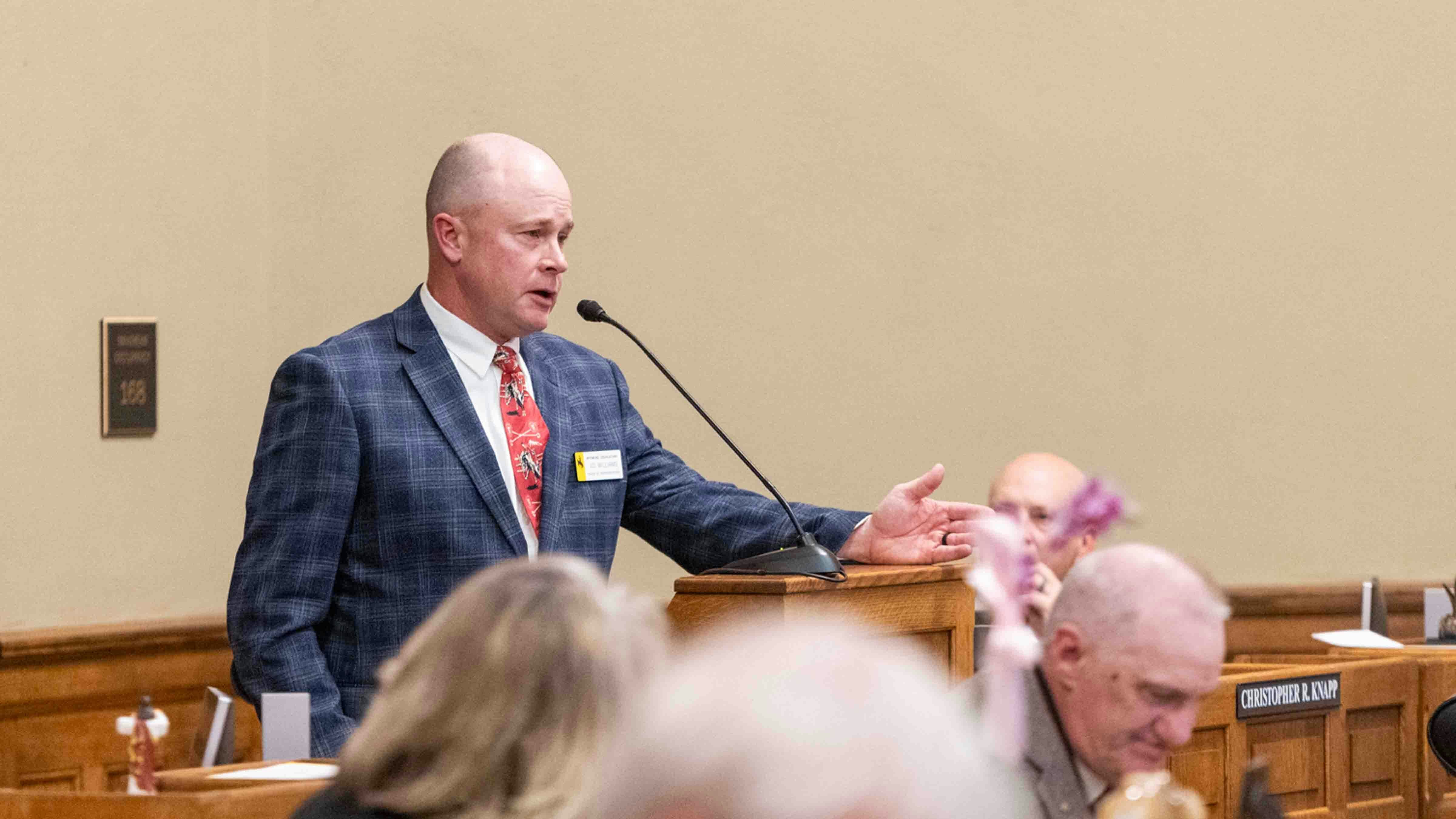CASPER — Months of emotional back-and-forth over a controversial gravel pit proposed for state-owned land near the base of Casper Mountain ended with an explosion of relief and a standing ovation from opponents of the mine for Natrona County commissioners, who essentially killed the project Tuesday night.
Nearly 100 local residents turned out for the meeting and a decision by commissioners on a conditional use permit for the gravel pit. They voted 4-0 to amend a 2022 zoning resolution and eliminate any opportunity for mining for gravel in the zone around Casper Mountain. That's what Prism Logistics wants to do on land in that zone it's leased from the state.
The vote means Prism’s plans can’t move forward — for now.
Commission Chairman Peter Nicolaysen did not vote, which went against the recommendation of the county’s Planning and Zoning Commission.
County Commissioner Dave North, who made a motion to change the amendment, told the crowd he didn’t know in 2022 — and still doesn’t know now — how the designation for a conditional use permit for mining ended up under a residential classification in the zoning resolution.
“There have been a lot of issues with zoning, and I will be the first one to tell you that,” he said. “I have absolutely no idea how this got in, and that’s the truth. The fact is, it wasn’t in there until 18 months ago.
“I think at this point and time I think the best thing for our community is to take the (conditional use permit option) out.”
Casper Mountain resident Gregg Werger pointed out that for years mining was not allowed in the MR-1 zone. Werger’s effort to amend the resolution, which required several steps on his part, was rejected by county planners 4-1. His amendment attempt brought months of concerns to a head Tuesday.
Commissioner Steven Freel echoed North and read from the 2022 Casper Mountain Land Use Plan that described the MR-1 zone as establishing and protecting areas of residential and accessory agricultural uses. The plan called for emphasizing “the unique characteristics and natural environment of the area itself.”
‘It Makes Absolutely No Sense’
Freel pointed to the impact of mining on the property rights of homeowners. He said under the MR-1 zone, there are several restrictions.
“You can’t have an office, you can’t have personal services, a retail store, a service station, you can’t have industrial or manufacturing heavy or light in that area,” he said. “So, if you can’t have that, then why in the world would we go to the extreme to say you can tear up the side of the mountain? It makes absolutely no sense.”
Prism Logistics Manager Kyle True told commissioners earlier that amending the ordinance would be a “takings of private property rights,” especially from those who might have surface minerals.
He reminded commissioners and the many residents at the meeting who live in the MR-1 zone that finding aggregate gravel to meet the needs of the community is not as easy. He said the MR-1 zone has that resource. In its 29 miles along the base of the mountain there are “thousands of acres of private property with no homes on them” that would be unavailable as a resource.
True also told commissioners with the county’s conditional use permit process, each mine or operation would have “an opportunity to explain itself” and meet concerns and answer questions.
“If they are persuasive, they would move forward and if they are not persuasive, they would not move forward,” True said.
In remarks preceding the vote, Nicolaysen said the zoning amendment and conditional use permit language did some good things for the county, but he also could not explain how the conditional use permit designation was allowed in the MR-1 zone.
He said some property owners would be hurt by the amendment, which he characterized as “a hammer” rather than a “scalpel.”
“I think 29 miles is a lot of property that is going to be impacted,” Nicolaysen said, blaming True for the need for the change.
“You and your proposal are the big problem. What they say in the law is bad facts make bad law. What you’ve brought before us in your being noncommittal and vague has struck fear (in) these people and 18,000 more people,” Nicolaysen said, referring to signed petitions against the gravel pit. “I think it has been handled by you very poorly and I think the best thing would be for you to decide and make a public announcement that you are not going to pursue this in this location.
“But you haven’t done that. So here we are being asked to make a decision that I don’t think is going to be particularly good for the long term.”
Water Impact A ‘Taking’
Among the nearly 40 people who spoke in favor of removing the conditional use permit option was Casper Mountain Preservation Alliance Chairperson Carolyn Griffith. She told the board that if its allowed mining there, it would endanger the fragile and shallow water aquifer used by residents.
“It is acknowledged through Natrona County’s own documentation that the water supply within MR-1 is fragile,” she said. “Risking unnecessary impact to legally held water rights by homeowners in MR-1 may certainly be viewed as a taking. So, for those saying removing the (conditional use permit) is a taking, I would counteract to say that having an impact on people’s water rights is a taking.”
Casper Mountain resident Tracy Lamont brought up a 1938 story from a local newspaper advocating for the protection of the mountain.
“We need to protect our crown jewel and not tear it down,” he said.
Lamont said mountain residents have been “stretched like rubber bands” over the issue and implored True to go find “other gravel” than the aggregate at the base of the mountain.
“Let’s not deface our whole mountain,” Lamont said.
Casper Mountain resident Walter Merschat, who lives directly south and above the school section on the mountain where True has proposed his mining operation, said his property and “everything we own is surrounded by Mr. True’s potential gravel operation.”
Merschat asked the commissioners to focus on the MR-1 zoning as they made their decision.
“What does MR stand for? Mountain residential,” he said. “Mr. True would prefer it to stand for mining residential. I am opposed to that.”
Commissioner Dallas Laird said that as a lawyer, he understands the gravel pit issue appears headed for court at some point. He said the county has been asked to file an amicus brief for a Teton County case currently before the Wyoming Supreme Court involving that county and the state’s dispute over appropriate land use on the state school section there.
Laird’s voice broke as he told residents he was voting to remove the option for a conditional use permit because he could “feel your pain.”
“I can’t take it anymore, I can see it’s in your faces and I think it is legitimate,” he said of the concern about the potential impact of a gravel mine. “And I know Mr. True can see it, and I know members of his family have seen it. This isn’t going to break him or make him either way.”
Following the meeting, True told Cowboy State Daily he had “no comment” on the vote to kill the plan.
Dale Killingbeck can be reached at dale@cowboystatedaily.com.








